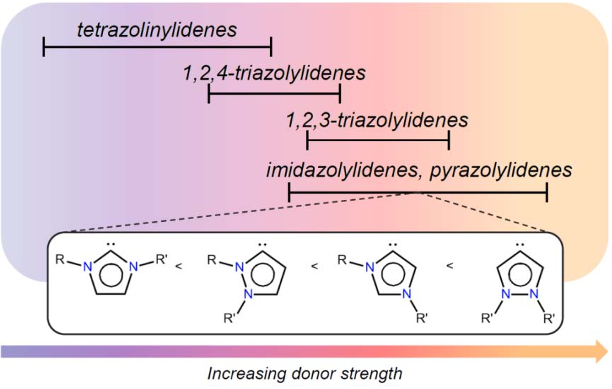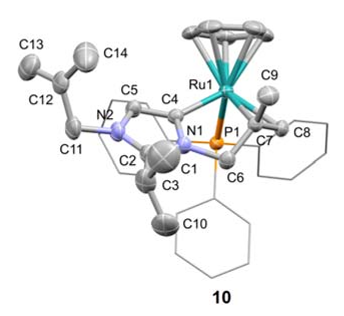Q1. What contributions have the authors mentioned in the paper "Synthesis, stability, and (de)hydrogenation catalysis by normal and abnormal alkene- and picolyl-tethered nhc ruthenium complexes" ?
In this paper, a series of p-cymene and cyclopentadienyl Ru ( II ) -aNHC derivatives have been synthesized from 2methylimidazolium salts with either an N-bound alkenyl ( 1, 3 ) or picolyl tether ( 6, 7 ).





